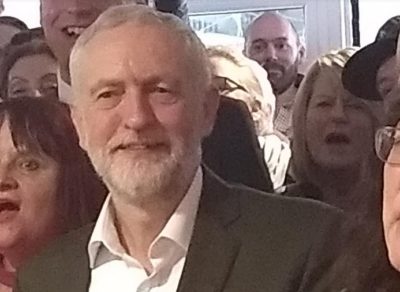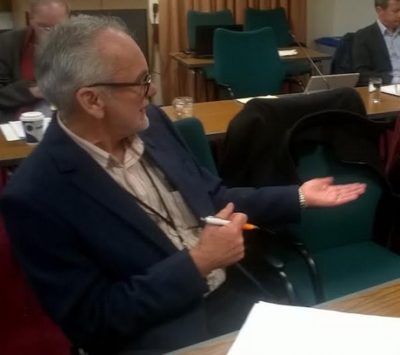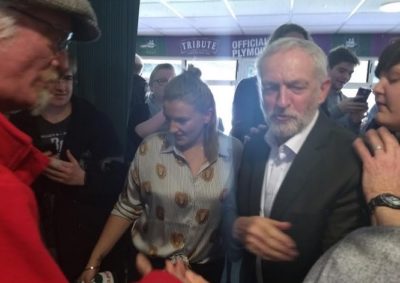
Labour is announcing a new policy to fund free bus travel for under 25 year olds across the country. The move could benefit up to 13 million young people, help them save up to £1,000 a year and will be paid for using money ring-fenced from Vehicle Excise Duty. The next Labour government will provide funds for free travel for under 25s to local authorities who introduce bus franchising or move to public ownership of their local bus services. This will support and incentivise local authorities to create municipally owned bus companies, run for passengers not profit, which research has found could achieve annual savings of £276 million per year.

Greater use of public transport reduces congestion, air pollution and carbon emissions. Free bus travel for under 25s will help generate lifelong increases in public transport use.
Policy Provides Help Where it is Most Needed
Launching the policy Jeremy Corbyn MP, Leader of the Labour Party, said “Young people deserve a break. Nearly eight years of Tory austerity have hit their incomes, their chance to buy a house and their career opportunities. Labour wants to help young people make the most out of life by investing in them, which is why today we are pledging the next Labour government will provide the funds to cover free bus travel for under 25s, to support them to travel to work, to study and to visit friends.
“Our policy provides help where it is most needed. On average, children, young people and households with children each have less disposable income than working age households without children. Young people also tend to be in lower paid, more insecure work, and they spend a higher proportion of their income on travel. Giving them free bus travel will make a huge difference to their lives.”

Cllr Mick Lerry, Leader of the Labour Group on Sedgemoor District Council said:
“Labour’s free bus travel for under 25s will help many young people in the District who have to travel to work, school and colleges. Many young people under 25 are in precarious work, even when they are students. Labour’s policy for bus public transport will help those in need and create extra public bus transport for those residents living in rural areas. It will also make sure that parents and carers will not have to pay for pupils attending school. It will also help Councils to set up public bus services, which will provide transport for the most needy in the community”.
Busses vital for Easing Road Congestion

“Buses are vital for easing road congestion and air pollution, but for too long, private bus companies have run our services for profit not people. The public purse already pays 42% of the costs of providing local bus services, but deregulated private companies choose to run only the profitable services and leave councils to plug the gaps left for non-profitable but vital routes.
“That’s why we’ll encourage local authorities to take back control of their buses so they can provide a better and more sustainable service to young and old alike, wherever they live.” (Andy McDonald MP, Shadow Transport Secretary)

Councillor Leigh Redman, Somerset County Council Labour Group Leader and Chair Children & Families Scrutiny member added:
“This policy will be a great boost for our young people in town & rural communities, it will help your local councillors encourage Somerset County Council to take back bus services and reverse the devastating cuts inflicted during this Tory administration, we need to be supporting our young people to get to work or education, there is no point in encouraging youngsters to take up apprenticeships or college places if they cant get to them in a timely manner”.
Notes to editors
- Research (Stokes 2013) shows people who learn to drive in their mid-twenties rather than in their teens drive 30% less for the remainder of their lives: Stokes, Analysis relating to peak car, 2013
- Research conducted by Transport for Quality of Life has shown that if buses were publicly controlled or owned throughout England, annual savings of £276million per year could be achieved: TfQL, ‘Building a world-class bus system’, 2016
- The average cost of a bus ticket in England is £1.94. Accordingly, if a young person takes the bus every day, under Labour’s policy they could save £1,000 annually.
- Labour has estimated the cost of the policy at £1.4bn per year at the end of a five-year Parliament. This is based on bus use statistics from the National Travel Survey; projections on how soon different authorities would be able to implement franchising or municipalisation; and estimation of elasticity of demand to reduction to zero fare on a similar basis to that used to reimburse bus operators for statutory free travel for older people under the English National Concessionary Travel Scheme.
- The policy will be funded through Vehicle Excise Duty revenues and would equate to 21% of VED revenue, which is forecast to be £6.7 billion in 2021-22. National Travel Survey , HMT, Autumn Statement 2016, Cm 9362, 23 November 2016, Table C.5, p58
